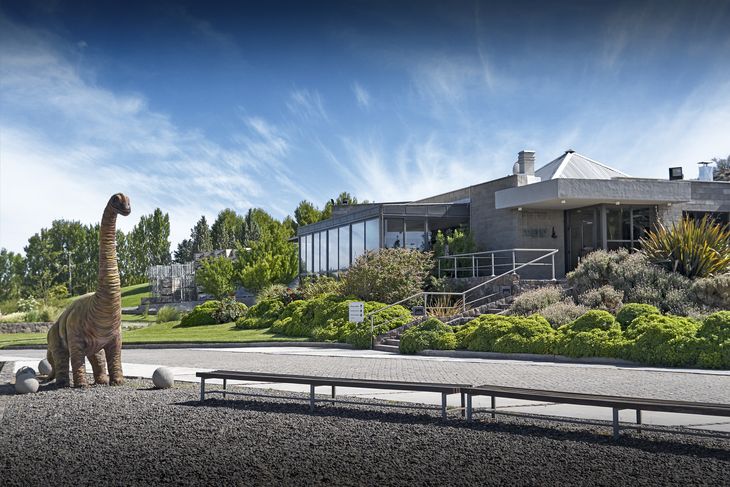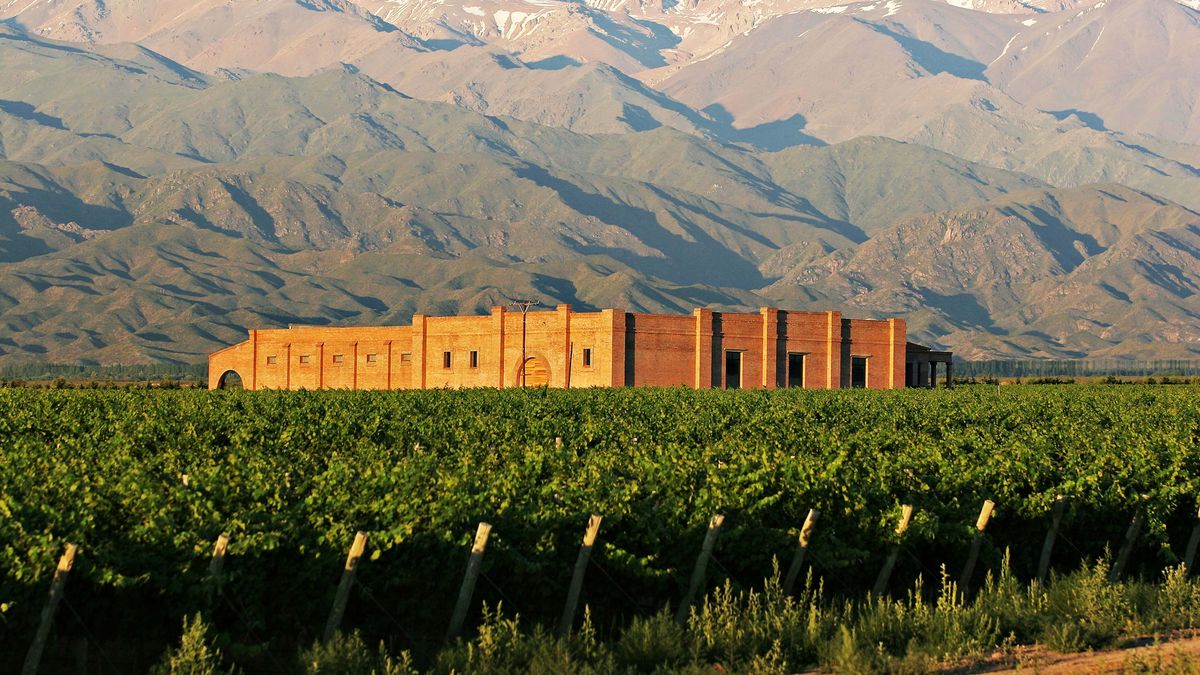As for the style of wines, there are changes: “particularly in Argentina, the search is in wines with less wood and with a slightly more marked acidity. The focus is on the terroir and how to translate it into wine,” said the specialist.
Another peculiarity is the importance of wine in gastronomy. Today, it is a reference at the tables of the Argentines. “Gastronomy plays a fundamental role in promoting Wines of a warehouse. The combination of local wines and dishes can enhance the taste and experience of the consumer, which can increase the appreciation and knowledge of the wines, “said Andreu, Hospitality Manager of Bandini farm, Bodega located in the gates in Luján de Cuyo, and which has a brand new gastronomic space. Andreu also gave recommendations to take into account for a good pairing: choose a wine that complements the flavors and aromas of the dish, for example, a wine with fruits notes for a dish with sweet flavors, not being afraid to experiment and ask an expert in wines or a sommelier to obtain personalized recommendations.
Organic and vegan wines: the purity of the earth in each product
Jimena López Campos, is the Enology Manager of Andeluna and explained the role that organic wines occupy. These are taking prominence, at times where the natural stands out.
“Organic wines are elaborated from cultivated grapes without the use of unauthorized agrochemicals for organic production and following vinification processes that limit the use of additives,” said López Campos. He also added that organic wines represent much more than a chemical -free product. They imply an integral vision of viticulture, which contemplates the care of the ecosystem and soil regeneration; the health and well -being of the consumer; The commitment to sustainability and environmental responsibility.
For its part, that a wine is Vegan It implies that some food additive of animal origin is not used at any time, a trend that is gaining more and more adherents.
Regarding the evolution of the organic wines market, the winemaker said: “It is estimated that the volume of elaboration and consumption of organic wine from here to 6 years will be doubled. There are countries where governments begin to opt for policies that are on this path, supporting or subsidizing agricultural productions that are sustainable.”
On the challenges presented by this range of wines, he pointed out that there are well -marked climatic changes, and above all unpredictable, which add up to the complexity of the management of an organic vineyard “the challenge is to produce every year wines of better quality” and maintain “consistency in time in the quality of the wines,” he concluded.
The rise of biodynamic wines
1 Chakana Visitor Center (23) .jpg
The Bioodynamic viticulture Not only does it seek to avoid the use of chemicals, but it is also based on a holistic vision of agriculture, considering the vineyard as an autonomous ecosystem.
Facundo Bonamaizon, agronomist of the winery Chakanaexplained: “Biodineamic wines are one step beyond organic wines (organic certification is mandatory to certify biodynamic), it is added that we must treat the vineyard as if it were a closed system, that is, it does not depend on inputs that are external to the vineyard and that it is sustainable, in addition to a holistic look.”
About his character, he stressed that “in general they are Very complex wines And that surely the place of origin and harvest reflects better since it has a lot of practices that tend to exalt already restrict the makeup processes that many wines usually have. ”In terms of the flavor they are more balanced wines, without exacerbating any of the components that make the taste of the wine and the structure will depend more about the place of origin.”The word balance I think it defines biodynamic wines well”He said.
While these wines are beginning to position themselves, for the moment the demand is niche: “For now in Argentina the demand of these wines is limited since people do not know much and there is much prejudice about organic and biodynamic wines for quality reasons in the external market, as this is already much more naturalized, it is more demanded,” Bonamaizon concluded.
The elegance of the vineyards of Patagonia
Schroeder Family – Saurus and Saurus Restaurant (1) .jpg

The vineyards of Patagonia are found in one of the most unique and promising wine regions of Argentina. Its fresh climate, with influences from Patagonian winds and the proximity to the Andes, creates ideal conditions for the cultivation of high quality wine varieties.
“Patagonia has exceptional conditions to produce high -end wines and foamers. It has a very low level of annual rainfall, which translate into healthier vine Schroeder family.
For all these conditions, the Patagonia region gained prestige and knew how to position itself as an area of quality wines and especially a star variety, which is the Pinot Noir.
“With a relatively very low planted surface, less than 2% of the total, Patagonia has achieved recognition as a quality wine preparer participating more than proportionally in export to demanding and high prices markets,” Schroeder added.
Anyway, the area is not free of challenges. “Productions per hectare lower, high logistics costs due to distances to markets and suppliers are challenges that we must overcome. In the economy that comes surely it will be very important to work in containment of costs,” said Schroeder.
Despite this, the company decided to plant this year, 30 new hectares of different clones of Pinot Noir, since the demand is growing.
Characteristics of Luján de Cuyo wines
Luján de Cuyo wines are distinguished by their elegance, complexity and balance. Vistallba Winery It is located in the Mendoza region, an area benefits from its altitude and temperate climate, allowing a slow maturation of grapes, favoring the development of intense flavors and a well -integrated acidity.
“The vineyards have a upper clay layer and a remarkable presence of in depth rolled singing. Plants experience less water stress, which contributes to the creation of intense but elegant wines,” said Paula Pulenta, director and administrative manager of the Pulenta family.
With vineyards dating from 1948 and until 1920, he also highlighted the climatic protection of the precordillera, which “generates warmer soils, favoring the production of wines with more friendly characteristics.”
Thus, “Luján de Cuyo wines are distinguished by their natural elegance and kindness in the mouth. They exhibit an attractive volume and a sucrose sensation, provided by the fruit and not by residual sugar, faithfully reflect the unique character of this Mendoza terroir,” Pulenta concluded.
Source: Ambito
I am an author and journalist who has worked in the entertainment industry for over a decade. I currently work as a news editor at a major news website, and my focus is on covering the latest trends in entertainment. I also write occasional pieces for other outlets, and have authored two books about the entertainment industry.

